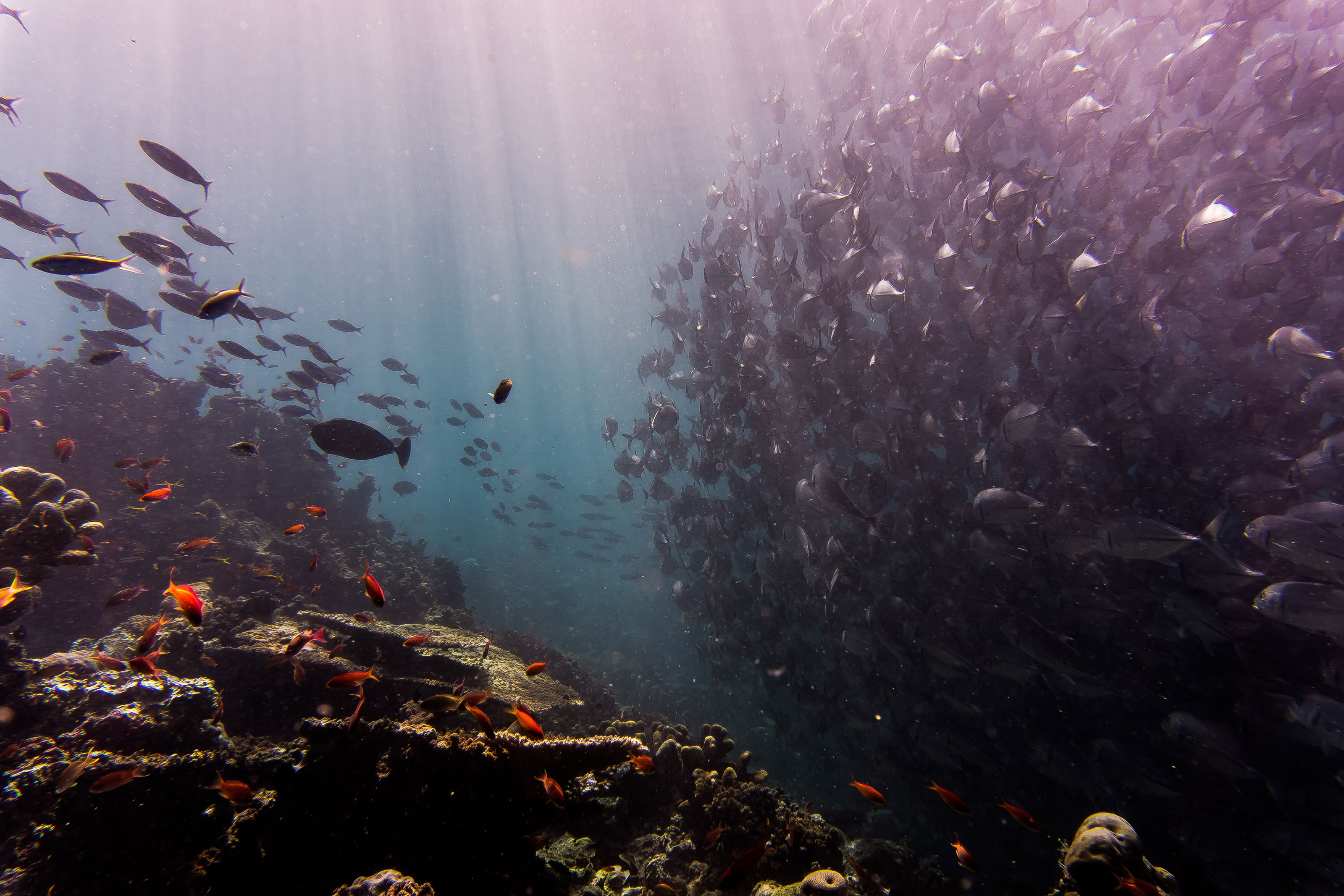
Uncovering the secrets of the swarm
Top-level researchers meet in the Council Building in Konstanz on 4 January 2017 – public lecture by Professor Jens Krause on the predatory behaviour of swarm-hunting fish
What can we learn from the movement patterns of animal groups to improve the control of driverless cars? How do social groups influence our daily life, such as our eating habits? What collective decision processes underlie our financial markets? Questions like these will start off the scientific year 2017 in Konstanz: a scientific top-level meeting in the field of collective behaviour and swarm intelligence research will take place in Konstanz on 4 January 2017. The University of Konstanz has invited leading scientists from the field of collective behaviour to discuss their latest findings and identify future research questions. The discussions will cover topics spanning animal group behaviour to collective social and economic processes up to psychology in human groups, as well as ground-breaking technological innovations in computer and information science. Participants will include world-leading experts from a variety of fields ranging from swarm intelligence to robot intelligence up to psychological research on the development of humans.
A highlight of the conference will be a public lecture (in German) by behavioural scientist Professor Jens Krause, Humboldt Universität zu Berlin, "Das Schwarmverhalten der Fische. Interaktion zwischen Räuber und Beute" (Swarm behaviour of fish: Interactions between predators and prey). Jens Krause has carried out pioneering scientific work in the field of collective behaviour and is an internationally renowned expert on swarm intelligence. In his lecture, he will present the hunting strategy of fish that predate on fish schools and will explain the prey swarms' defence strategy. His research on fish and large groups also has huge implications for understanding large human crowds. Jens Krause thinks that mass events can be controlled well if human swarm intelligence is taken into account. His lecture will take place in the Council Building in Konstanz on Wednesday, 4 January 2017, starting at 18:00.
After the lecture the research on collective behaviour will come to life in an interactive demonstration. Visitors will be able to see how researchers study the movement of individual locusts with the help of state-of-the-art technology in order to predict devastating plagues.
The University of Konstanz is gaining ground as a global hub for interdisciplinary top-level research on swarm and collective behaviour. The northern corner of the campus will soon be home to the "Center on Visual Computing of Organismal Collectives" - a state-of-the-art research facility that will connect experts from the fields of biology, computer science and information science. The ICARUS satellite system will make it possible, starting in 2017, to track the migration of animals around the globe and understand the collective processes of our global ecosystem. The research field includes the analysis of biological swarm behaviour, collective economic and social processes as well as data analysis. In addition to this, the researchers from the University of Konstanz develop new analysis techniques to track, analyse and visualise the behaviour of swarms; for example, photorealistic 3D-environments in which swarms interact with a virtual environment. The movement patterns of all individuals of a swarm and their collective reaction to obstacles or predators, which are shown virtually, can be recorded and analysed at the same time. This way the researchers can gain important insight into collective decision patterns and swarm behaviour.
Facts:
- Interdisciplinary top-level research focus on swarm and collective behaviour at the University of Konstanz
- Starting in 2017: satellite system ICARUS for the study of global migration of animals and collective processes in the global ecosystem in the “Centre on Visual Computing of Organismal Collectives (VCC)”
- Lecture: „Das Schwarmverhalten der Fische. Interaktion zwischen Räuber und Beute“ (Swarm behaviour of fish: Interactions between predators and prey”
- Where: Council Building in the city centre of Konstanz
- When: Wednesday, 4 January 2017, 18:00
